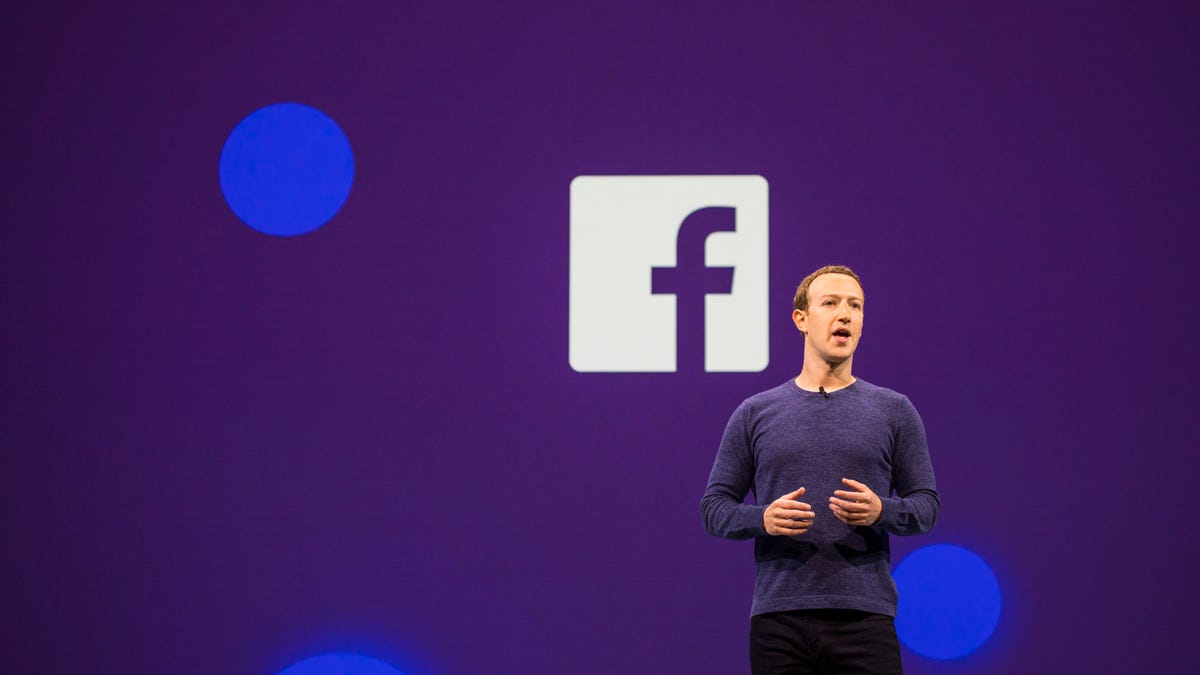UK lawmakers say Facebook hasn't played straight with them on fake news
A Parliament report set for release Sunday says Facebook has been less than candid in addressing questions about disinformation on its platform, according to The New York Times.

Facebook CEO Mark Zuckerberg. It hasn't been the best week for him.
Expect another black eye for Facebook come Sunday.
The world's largest social network has been "disingenuous" with UK lawmakers investigating fake news and Russian propaganda on social media platforms, says a report set for release that day, according to a Saturday story from The New York Times.
Prepared by a UK Parliament committee, with help from the US Senate's Intelligence Committee, the report calls for tough new rules on social media companies, including holding such firms liable for content on their sites, as opposed to treating the companies as "passive platforms" with no responsibility for user-generated posts.
Other recommendations include government standards for impartiality and accuracy like those applied to traditional broadcasters, a new tax on tech firms to pay for greater oversight and the levying of heftier fines related to the mishandling of data along with the spread of disinformation.
Such government regulation is needed in part because Facebook's resistance to providing information to Parliament "does not bode well for future transparency," the report says, according to the Times' story about the document. "Facebook should not be in a position of marking its own homework," the report says, according to the Times.
The parliamentary report is the latest bad news for Facebook. The social network has taken heat from lawmakers and others about the use of its platform to spread disinformation and foment discord during the 2016 US presidential election and the Brexit campaign. Executives with the company have appeared at hearings in both the US and Europe to answer questions about those concerns and about a data scandal involving political consultancy Cambridge Analytica.
Facebook's stock price plummeted Wednesday, following a quarterly earnings report from the company that indicated slowing growth. Investments related to security and to addressing fake news "will significantly impact our profitability," CEO Mark Zuckerberg said during the earnings conference call. "This is a critical year for Facebook."
By the end of the day Thursday, Bloomberg had reported that the social network had suffered the largest-ever stock market loss in value during a single day for any US company -- as much as $124 billion.
The Parliament group behind the Sunday report, the Digital, Culture, Media and Sport Committee, didn't immediately respond to a request for comment Saturday. Nor did the Senate Intelligence Committee or Sen. Mark Warner, the ranking Democrat on the committee.
When the report is officially released Sunday, Facebook is expected to say that the parliamentary committee raises important issues, that the company agrees political advertising should be fair and transparent, and that Facebook will work closely with the British government to develop transparency tools.
Cambridge Analytica: Everything you need to know about Facebook's data mining scandal.
iHate: CNET looks at how intolerance is taking over the internet.

